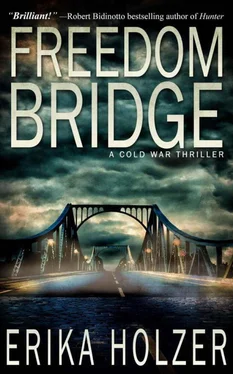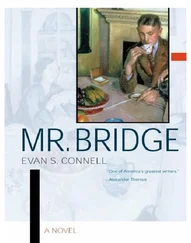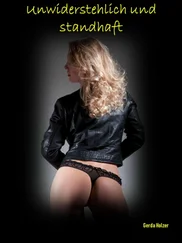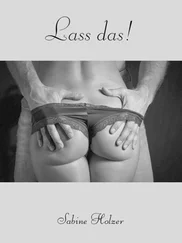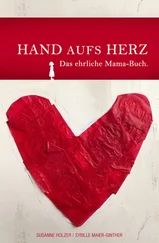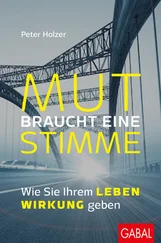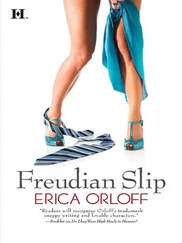Kiril, three years younger, had never had much contact with his father when he was sober, which wasn’t often. Nor did he care for his aunt. For one thing, she took him away from his gentle and loving Aunt Marissa. For another, Aunt Sofia had thick legs and walked like a man—sometimes even wearing long pants! Her hair was black and very short. He often found himself staring at her stubby fingernails whenever she gripped his arm to drag him off someplace.
While Aleksei prospered in the junior communist organizations, becoming feared rather than liked, Kiril rebelled as best he could by disobeying orders, breaking discipline, and refusing to participate in overtly patriotic conduct.
When Sofia had had enough of Kiril’s disobedience, she decided to teach her young charge a lesson. Reminding him he was the son of an Enemy of the People, and that the state could do what it wished with him— from sending him to a Gulag camp to deporting him to some remote place in the Soviet Union, or even dumping him in some state-run orphanage—she took him to such an orphanage to underscore her point.
It was late November. The first thing Kiril saw was children without shoes, their bare feet frostbitten. Sofia described how starvation and malnutrition were the norm and child-inmates were left to forage through rubbish. She pointed out acute shortages of everything from shoes and clothing to blankets, and then took him to see four lucky children who shared a filthy lice-ridden mattress without blankets while the unlucky ones slept on the floor. Reliable heat was non-existent, as were washing facilities. Trips to the bathhouse were, at best, every other month. The absence of toilets forced the children to relieve themselves anywhere—yards, hallways, even where they slept—which, of course, led to disease. Typhus, dysentery, malaria, scurvy, and rickets were rampant. Corpses lay where they died until someone with a face-mask got around to removing them. The mortality rate in some orphanages—particularly in the Ukraine—was one-hundred percent, she told him. Beatings by older children and staff were common. So were sexual attacks.
Kiril refused to give his aunt the satisfaction of bursting into tears even as he bit his lip until it bled. Only after he was alone in his own room did he allow himself to cry. For weeks he cried himself to sleep every night.
But he got the message.
“There, but for the grace of State and Party, go I.”
While Aleksei thrived—not academically, but in contact sports and extracurricular activities—Kiril learned as much as he could about as many subjects as possible. He had never forgotten his visit to the orphanage. He vowed he never would. Someday, somehow, he would liberate himself from the Soviet Union.
From 1936 to 1938, there were four major show trials in the Soviet Union as Josef Stalin rid himself of his enemies, real and imagined. Three of every five marshals were eliminated, along with 90 percent of the generals, 80 percent of the colonels, and every regimental commander—a total of some 30,000 military officers. The entire Politburo was purged, as was most of the Central Committee of the Communist Party, and countless intellectuals, bureaucrats, factory managers, and foreign communists who lived in the Soviet Union. Mass arrests, torture, imprisonment, execution without trial, and an absence of authentic judicial process was the rule, not the exception. The NKVD’s own estimate was two-fold: roughly 700,000 men, women, and children shot in 1937-1938 alone and hundreds of thousands more shipped to the Gulag work camps.
The charges against these political prisoners ran the gamut from sabotage, spying, and counterrevolution, to conspiring with foreign powers. Most of the accused confessed under torture. As to those who steadfastly refused, they too were guilty because Stalin said they were.
Aleksei was eighteen years old when the trials began. He followed the proceedings with morbid interest, identifying with the prosecutors. He was convinced the charges were legitimate, the confessions and proof conclusive, the convictions and sentences just. In the Young Pioneers, the Young Communist League, and then as an observer of the Stalin show trials, Aleksei Andreyev was learning two important lessons. That fear was a powerful weapon. And that to induce fear one had to possess power. Wielding both would bring even strong men to their knees.
Kiril, who had just turned fifteen when the show trials began, instinctively recognized they were a sham. Stalin was murdering innocent people so he could consolidate his power and feed off the slogan popularized by Karl Marx in 1875: “From each according to his ability to each according to his needs.”
From that time on, not a day passed when Kiril did not feel the weight of collectivism and statism pressing down on his soul.
Living with Sofia Andreyev, a die-hard Communist since 1922, had by 1938 driven thoughts of Anna and Kolya, and even of his father, from Aleksei Andreyev’s mind. Under his aunt’s tutelage, and after a decade in communist youth groups, nineteen-year-old Aleksei had become a dedicated Communist. Ordinarily, as the son of an Enemy of the People, he would have had no chance to enter training for any of the Soviet intelligence or security services. But proud of what she had turned the boy into, his aunt got him admitted to training for the secret police—by then known as the NKVD. The organization had a huge jurisdiction. Performing mass extrajudicial executions. Operating the Gulag’s forced labor camps. Deporting Russians and other nationalities to unpopulated regions of the U.S.S.R. Guarding Soviet borders. Conducting espionage. Assassinating political opponents. Influencing foreign governments. Enforcing Stalinist policies in other countries’ Communist movements. Recruiting foreign spies. Interrogating arrestees. Coercing confessions. As befitting such an organization, NKVD training was physically arduous, mentally challenging, morally ambiguous, and often brutal. Aleksei loved every minute of it.
Having raised the two brothers during their most formative years, Sofia Andreyev knew that because Kiril so hated the State, he would have to be channeled into adult work that was largely divorced from politics. And because he’d always excelled in math and science and shown an interest in anatomy, his aunt had convinced him to try for medical school. Being admitted wasn’t hard. Kiril had finished the nine-year school with honors. He possessed a rudimentary knowledge of English and German, and his Aunt Sofia was a formidable presence in the Novogorod Communist Party. What also worked to his advantage was how the State, in the 1920s, had made a special effort to increase the number of doctors—partly in anticipation of a coming war with Germany. New medical schools were opened. One year was cut from the course of study and Latin was eliminated as an entrance requirement. All of which shifted the emphasis away from written examinations and increased the number of social and political subjects in the curriculum. Ever since his frightening experience at the orphanage, Kiril had avoided political problems. By the time he entered medical school, his early childhood taint, neutralized by his aunt, was over a decade old. Ironically, having a brother in the NKVD didn’t hurt either. But no matter how comfortable he was in the apolitical cocoon of medical school, Kiril continued to feel isolated and alone.
On September 1, 1939, forces were set in motion which would fundamentally impact the lives of both brothers. On that day Nazi Germany—and, sixteen days later, the Soviet Union—launched a pre-planned joint attack on Poland. The combined onslaught against an essentially defenseless sovereign country would be prelude to a war between the two aggressors at a time in the not entirely unforeseen future. Indeed, Stalin knew Hitler would attack the Soviet Union. He just didn’t know when. In anticipation of this falling out between partners, the NKVD rushed Aleksei through his final training and into the field. As for the medical school Kiril was enrolled in, it accelerated his final course, dispensed with exams, and graduated him months ahead of time.
Читать дальше
